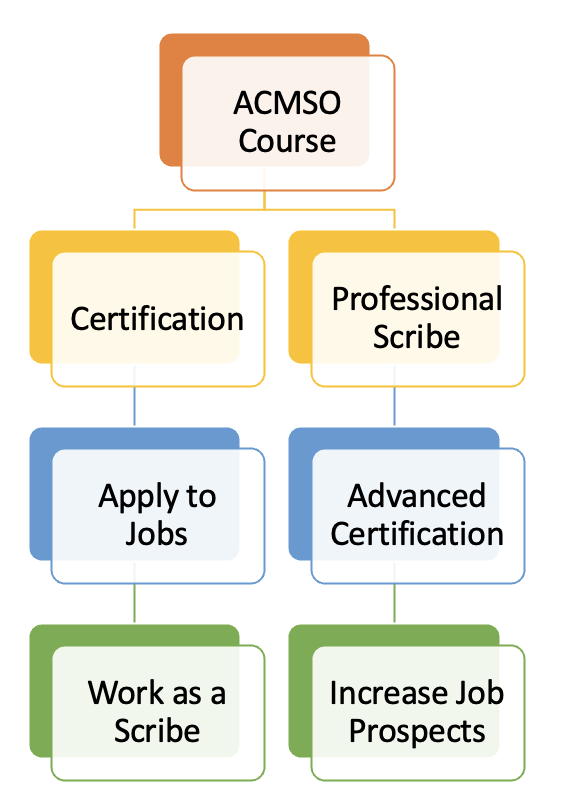Medical Scribe
In the ever-evolving world of healthcare, medical scribes are emerging as essential assets for physicians and patients alike.
What is a Medical Scribe?
A medical scribe is a certified healthcare professional who acts as a right-hand to physicians by documenting patient interactions in real-time. They efficiently capture details within the Electronic Health Record (EHR) as doctors dictate them, streamlining workflows and maximizing time spent with patients.
Beyond Documentation: The Advantages of Medical Scribes
Medical scribes offer a multitude of benefits for clinics, hospitals, and private practices. Here's how:
Enhanced Patient Satisfaction: By freeing physicians from administrative burdens, scribes facilitate longer, more focused consultations, leading to better patient experiences.
Reduced Physician Burnout: Alleviating documentation pressures allows doctors to prioritize patient care and combat burnout.
Increased Revenue: Improved efficiency translates to seeing more patients and potentially higher revenue for practices.
Qualities of a Medical Scribe
Medical Terminology Expertise: A strong understanding of medical terms is critical for accurate documentation.
Exceptional Typing Skills: Speed and accuracy are essential for capturing physician dictation in real-time.
EHR Proficiency: Familiarity with Electronic Health Record systems ensures efficient data entry.
Effective Communication: Clear and concise communication is key for interacting with physicians, patients, and families.
Where do Medical Scribes Work?
Medical scribes are valuable additions to various healthcare settings, including:
Hospitals
Clinics
Private Practices
Other Clinical Environments
A Rewarding Career Path
Medical scribing offers a fulfilling career path for those interested in the medical field. It provides invaluable exposure to the intricacies of healthcare delivery and can serve as a stepping stone for further education in medicine.
Partner with Medical Scribes for Improved Care
By incorporating medical scribes into your practice, you can significantly enhance efficiency, boost patient satisfaction, and empower physicians to deliver exceptional care. Invest in medical scribes and revolutionize the way you deliver healthcare.
What does a Medical Scribe do
Medical scribes must have a clear understanding of medical terminology, abbreviations, and acronyms. They are responsible for accurately recording information into electronic medical records (EMRs), so they must pay close attention to details.
Medical scribes must be proficient with computers and understand how to navigate different systems quickly and efficiently. In addition to typing notes into an EMR system, they must also communicate effectively with physicians by listening intently and accurately summarizing conversations between doctors and patients.
Medical scribes may face stressful situations at times, such as when dealing with time-sensitive cases or difficult patients; therefore it is important for them to remain calm while performing their job duties in order to ensure accurate documentation is made in a timely manner.
As medical scribes are often required to work on multiple tasks simultaneously throughout their shifts, they will need strong organizational skills in order to keep track of all the information they are gathering from physicians as well as ensuring all notes are entered accurately into the EMRs.
Medical scribe roles often require them to work long hours during peak times or emergency situations; therefore it is important for them not only be flexible but also adjust their schedules accordingly.
What is a medical scribe
Medical scribes are medical professionals who assist physicians by entering patient medical information into electronic health records (EHR). They also provide administrative duties such as scheduling appointments and taking phone calls. Medical scribes are usually trained on the job by a physician supervisor or through a formal certification program.
In order to become a medical scribe, certain qualifications must be met. Generally speaking, a high school diploma is required; however some states may require additional certifications or licensure in order to work in the field.
The training process for becoming a medical scribe varies depending on the employer but may include on-the-job training under the guidance of an experienced physician or hospital administrator, or participation in formal certification programs.
Salary for entry-level positions average $30,000-$35,000 annually but with more experience in the field and additional specialized training salaries can range from $40k - $60k annually depending on geographic location and other factors.
How to become a medical scribe
A medical scribe's responsibilities include transcribing medical notes in real-time during patient visits, accurately entering data into Electronic Health Records (EHRs), collaborating with physicians to ensure accuracy of documentation, and handling other administrative duties.
To become a medical scribe, you must have completed high school graduation and it is beneficial to take courses like biology, communication, writing, and basic computer sciences during high school. You can become certified by passing the exam of the American college of medical scribe specialists.
To strengthen your resume , you can get professional experience as a note taker or office assistant. The best institute for providing certificates along with professional experience opportunities is American college of medical scribe specialists (ACMSO).
The Advanced Medical Scribe Training (AMST) course from ACMSO is a well-rounded program that provides equal importance to both theoretical and practical training. The curriculum was developed by expert physicians and includes 100+ modules on clinical documentation skills, with a focus on proper protocol during patient consultations and medical documentation.
ACMSO also includes modules on regulatory standards, such as the Health Information Portability and Accountability Act (HIPAA), as well as coverage of various specialized domains of medical knowledge. The ACMSO lays a solid foundation of medical knowledge and clinical skill upon which to build a successful career as a health-care professional.





